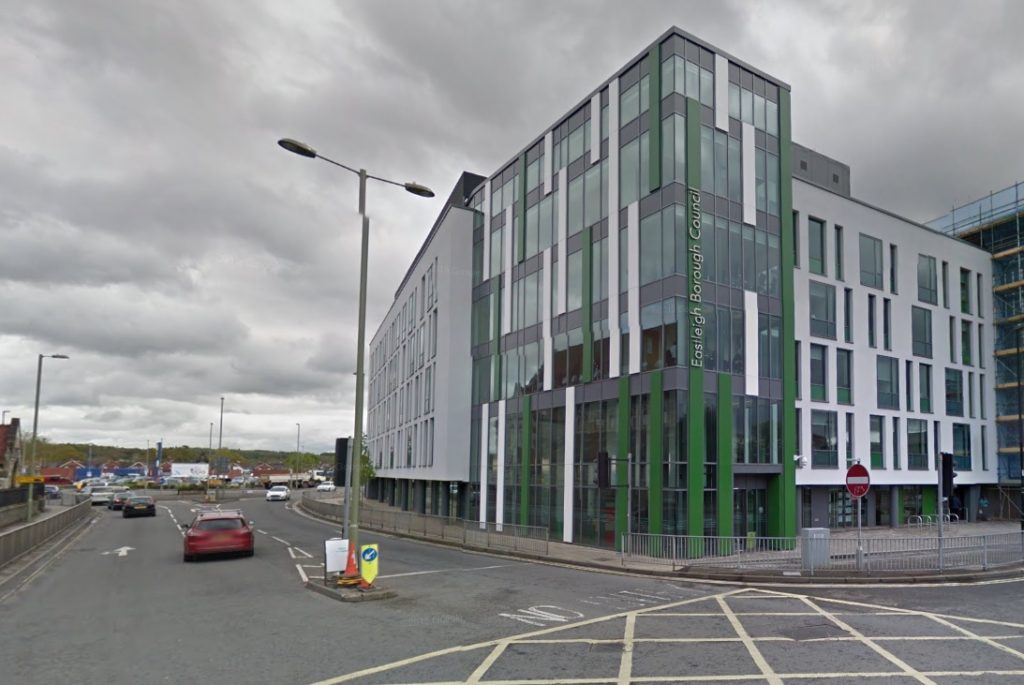Introduction
Eastleigh Borough Council moved its Civic Offices back into the centre of town in 2014 after having moved to the edge of the town in 1976. Although on a larger site, the old building no longer met many modern building regulations. It was poorly insulated, could be very cold in the winter and too warm in the summer. The Council’s primary responsibility is for collecting household waste, setting Traffic Regulation Orders and delivering over planning applications. The Council’s annual spend is around £53m and has around 500 staff.
Eastleigh Borough Council meetings
The Borough Council meetings are meetings held in public, so you are very welcome to pop along. The meeting items and agendas are published in advance on the Borough Council website, so if you have a Planning issues or maybe something relating to a local open space, then you may want to attend a particular meeting.
Budget Setting
Like other local authorities, at around January of each year Councillors will have to decide on how to spend the money that has been made available to them through Government grants and council tax income. Through prudential fiscal planning over the years, Eastleigh punches above its weight with respect to its income generation mechanisms. For this reason, for more than 12 years, the Council has been able to keep council tax increases to either 1% below inflation or has frozen council tax completely.

General Fund Revenue Budget
On the 4 February 2016, the Chief Financial Officer and the Chief Executive Officer of the council presented a joint report to members and public. In the report, they confirmed that on 17 December 2015 the Government announced that the Local Government Finance Settlement for 2016/17 amounted to a 17.6% reduction in funding from the Revenue Support Grant and Business Rates Retention funding received last municipal year. Government projections are that the Revenue Support Grant will reduce to nil by the municipal year 2019/20.
Reserves
All local authorities by statute have to maintain an agreed level of minimum Reserves such that it can pay any expected or unexpected calls on its finances during the forthcoming financial year. George Osborne has been quoted as saying that council Reserves throughout the country total £22billion, which he thinks too high a sum and that councils have become too conservative. It has to be said that in the light of this comment, it is of no surprise that Government funding is being reduced in such a dramatic fashion. Government is suggesting that local authorities will be able to retain local business rates, but that they must be fiscally neutral. In other words, the amount collected in this way should equal the amount Government would have given in Revenue Support Grant. In an attempt to bring in more cash, some local authorities may be tempted to increase the business rate to compensate, but as this could have an adverse effect on the country’s GDP it is fully expected that Government will put a cap on any business rate increase. Eastleigh’s accounts have been written assuming a 0% council tax increase in April 2016 and in accordance with its Medium Term Budget Strategy, the General Fund Reserve is maintained at a minimum of 10% of the Council’s net revenue spend, which for 2016/17 is a balance of £0.929.
Local Financial Independence
If Government plan to reduce funding by a significant amount, councils will have to self-
Future Eastleigh
Even though fiscal prudence has left the council in a relatively healthy state when compared to other authorities, a consultancy firm Ignite has under the project title of Future Eastleigh been engaged to find efficiencies in the way the council carries out its business. These efficiencies will almost certainly mean a reduction in staff, which will be reported to Cabinet in March 2016. The budget report was recommended to Full Council at its meeting on 25 February 2016.
